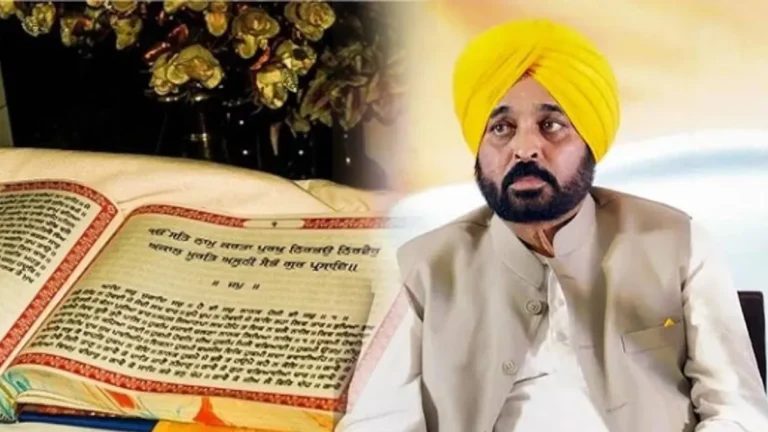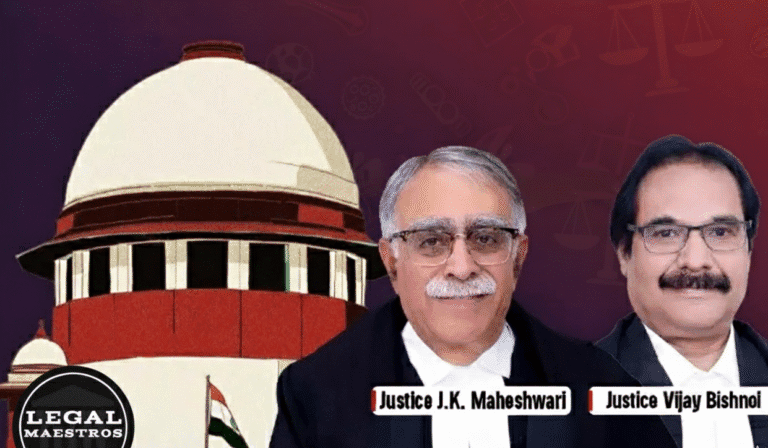
Akshay Kumar Sues Paresh Rawal for ₹25 Crore: Alleged Breach of Contract Under Indian Contract Act in Hera Pheri 3 Fallout
The Primitive Ideas and Concepts
As a result of the renowned actor and producer Akshay Kumar’s lawsuit against his long-time co-star Paresh Rawal, which sought damages in the amount of ₹25 crore, the Bollywood business experienced a legal fight that had never been contemplated before.
The argument broke out as a result of Rawal’s unexpected resignation from the highly anticipated comedy sequel “Hera Pheri 3” while production was still in progress. This transpired in spite of the fact that Rawal had reportedly signed a contract that was legally binding and had actually started with the filming process.
This article about the case discusses a number of topics, including the facts of the case, the contractual principles that are at play under the Indian Contract Act of 1872, and the significant legal challenges that the courts will have to address in the future.
For any queries or to publish an article or post or advertisement on our platform, do call at +91 6377460764 or email us at contact@legalmaestros.com.
Facts to Consider and Historical Context
The film “Hera Pheri 3,” which was directed by Priyadarshan and was intended to be released, was going to be a reunion of the well-known three that consists of Akshay Kumar, Paresh Rawal, and Suniel Shetty. The rights to produce the film were obtained by Cape of Good Films, which is owned by Akshay Kumar, from an earlier producer in April of 2025. This gave them the opportunity to start production on the film.
It has been stated that Rawal has signed a contract and has even shot a number of sequences for the movie, which is evidence that he has legally committed to working on it. Rawal made the statement that he was leaving the picture on social media in the middle of the month of May.
Despite the fact that he denied that there were any disagreements about artistic matters, he did not disclose any specific reasons for his leaving. As a consequence of this unanticipated departure, the production was paused, costly reshoots were required, and the release plans were considered to be in peril, as stated by the plaintiffs.
For any queries or to publish an article or post or advertisement on our platform, do call at +91 6377460764 or email us at contact@legalmaestros.com.
According to the Indian Contract Act, in order for a contract to be regarded legitimate, it must contain the following characteristics: an offer, an acceptance, lawful consideration, the capacity to contract, and a lawful object.
It is expected that these elements will be present in the contract. When Rawal reached this position, Akshay’s production company made him an offer to play a role in exchange for a specific number of cash. Rawal accepted the offer. The signature of the agreement by Rawal and the beginning of the filming process both served as indications of acceptance and partial performance with regard to the project.
Because of the agreements that were made by both parties, there are obligations that are obligatory. Given that both parties possess the essential legal ability and that there is no sign of any sort of coercion or fraud, it would appear that the criteria of a valid contract have been satisfied. This is because there is no evidence of any form of fraud or coercion.
For any queries or to publish an article or post or advertisement on our platform, do call at +91 6377460764 or email us at contact@legalmaestros.com.
The Traits of the Supposedly Inappropriate Behavior
This is the assertion that is being made, and the fundamental claim that is being made is that Rawal’s departure without prior notice constitutes a breach of contract. There is a provision in the Contract Act that states that the act of refusing or failing to perform a promise is deemed to be the same as breaking the promise.
This provision can be found in Section 39. Due to the fact that Rawal has withdrawn from the picture without offering a sufficient legal cause, it has been argued that he has violated his contract to act. In the instance of Cape of Good Films, the party that is not in default is eligible to receive remedies made available by the Act in the event that there is a breach of contract, whether it be an anticipatory breach or a genuine breach.
In accordance with the Indian Contract Act, the following legal options are available:
For any queries or to publish an article or post or advertisement on our platform, do call at +91 6377460764 or email us at contact@legalmaestros.com.
In the case that he has filed, Akshay Kumar draws reference to Section 73 of the Act, which states that a person has the right to get compensation for any loss or harm that is caused as a result of a breach of contract. In line with the terms of this section, the party that has violated the agreement is obligated to pay the party that has been wronged for losses “which naturally arose in the usual course of things” as a result of the breach or damages that were in the parties’ planning.
This obligation is imposed on the party that has been wronged. Cape of Good Films says that the potential losses, which include production delays, recasting costs, and potential box office losses, amount to ₹25 crore in the case that Rawal does not perform as projected when it is released. During the time that the deal was being negotiated, the company claims that these losses were anticipated.
In the event that a party rescinds a contract prior to its performance, Section 75 allows for compensation to be granted. This is the case even if there is no claim for exceptional damages. The concept underlines that a party cannot escape blame by unilaterally withdrawing from a contract, despite the fact that rescission typically refers to a common decision to dissolve any agreement.
For any queries or to publish an article or post or advertisement on our platform, do call at +91 6377460764 or email us at contact@legalmaestros.com.
This is because withdrawal from a contract is seen to be a unilateral action. Furthermore, Section 72 imposes liability in circumstances where the non-performance of one party prohibits the other party from carrying out the terms of the contract for which they are responsible. It is possible that this stipulation would be applicable in the event if Rawal’s departure made it impossible for Akshay to locate new cast members who would be willing to work under the same circumstances.
For More Updates & Regular Notes Join Our Whats App Group (https://chat.whatsapp.com/DkucckgAEJbCtXwXr2yIt0) and Telegram Group ( https://t.me/legalmaestroeducators )
A determination of the extent of the damages and the probability that they will occur
A comprehensive assessment of the claim will be carried out by the courts in order to ensure that the amount of ₹25 crore that is being sought is in compliance with the law of remoteness. At the time that the contracting process was being carried out, the only losses that are eligible for compensation are those that were within the reasonable capacity of both parties to predict.
For any queries or to publish an article or post or advertisement on our platform, do call at +91 6377460764 or email us at contact@legalmaestros.com.
In order to demonstrate that Rawal was aware of, or ought to have been aware of, the fact that abandoning the shoot in the middle of production would result in expenses of several crores for rescheduling, set rentals, and post-production adjustments, the team that is representing Akshay needs to offer evidence that Rawal was aware of this information.
As an additional obligation, the mitigation principle stipulates that the plaintiff is obligated to take reasonable actions in order to lessen the amount of losses that would otherwise be borne. In the case that Cape of Good Films quickly utilized the services of another actor or rescheduled their filming schedules in order to save money, the court may limit the amount of damages that are recoverable in a proportional or equivalent manner.
The damage assessment will place a substantial focus on preserving open and accessible records of production budgets, notification timescales, and replacement costs. This is because of the fact that the damage assessment will be conducted.
For any queries or to publish an article or post or advertisement on our platform, do call at +91 6377460764 or email us at contact@legalmaestros.com.
There are a number of possible defenses and excuses for the offense.
There is a potential that Rawal will pursue a defense of liability by arguing that there is no contract that is genuine and enforceable. As a result of the fact that discussions about essential components are still in progress, there are a few speculations that assert that a formal contract for “Hera Pheri 3” might not have been exploited to its full potential.
In the event that Rawal is able to provide evidence that there was no final signed instrument, there is a risk that he may dispute the mere existence of contractual responsibilities. If there are ambiguities regarding the performance conditions or force majeure clauses linked to challenges in production or creativity, it is possible that non-performance could be excused even if the term sheet has been signed. This is the case even if the term sheet has been signed.
For any queries or to publish an article or post or advertisement on our platform, do call at +91 6377460764 or email us at contact@legalmaestros.com.
An additional potential defense is frustration, which states that an unplanned incident rendered performance either impossible or illegal. This defense is in accordance with Section 56, which also includes other potential defenses.
The high threshold for dissatisfaction, which requires the primary objective of the contract to be thwarted by events that are beyond the control of either side, is frequently not adequately satisfied by simple apathy or a lack of alignment with the script. This is because the major aim of the contract must be compromised.
This will have significant repercussions for the industry as a whole.
For any queries or to publish an article or post or advertisement on our platform, do call at +91 6377460764 or email us at contact@legalmaestros.com.
In the Bollywood industry, there are growing concerns over professional accountability, and this high-profile litigation has brought these concerns to light. The dedication of the actors is of the utmost importance in the creation of franchise films, which often require significant budgets and shoots that are scheduled in a very tight timetable.
It is possible for actors and producers to negotiate for more clear exit clauses, penalty measures, and escrowed advances in order to safeguard their investments in the event that the courts decide to uphold broad responsibility for mid-shoot withdrawal. In the case that it is determined that such agreements are not enforceable, it would be prudent to conduct a reevaluation of the manner in which talent contracts are being drafted and carried out.
Summary and Conclusions
As a consequence of Akshay Kumar’s unprecedented lawsuit against Paresh Rawal for allegedly breaching his performing contract in “Hera Pheri 3,” there will be a test of fundamental principles of contract law under the Indian Contract Act. This was brought about as a result of the controversy surrounding the film. The value of the litigation is Rs. 25 crore.
For any queries or to publish an article or post or advertisement on our platform, do call at +91 6377460764 or email us at contact@legalmaestros.com.
The courts are obliged to strike a necessary balance in order to achieve a balance between the severe enforcement of reciprocal responsibilities and equitable considerations of foreseeability, mitigation, and the reality of creative collaboration.
Finding this balance is necessary. As a result of the resolution, not only will this significant problem be resolved, but it may also lead to a reorganization of the contractual conventions that govern the film industry in India. The integrity of agreements would be strengthened as a result of this, while at the same time an adequate degree of flexibility would be maintained for both artists and producers.






